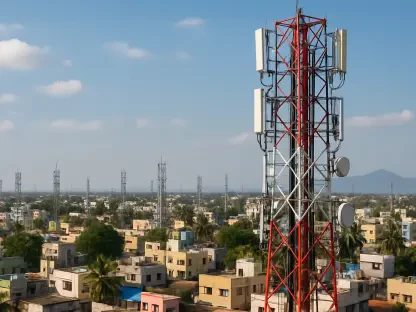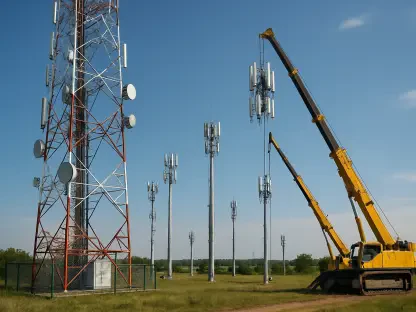In the heart of Lordstown, Ohio, a pivotal debate is unfolding as the Village Council contemplates an emergency ordinance to ban data centers within its corporate limits, sparking intense discussion among residents and stakeholders about the balance between technological advancement and local interests. This proposed legislation emerges at a time when the village is experiencing significant economic redevelopment, with major players like SoftBank and Foxconn driving transformative projects. The tension between fostering technological innovation and safeguarding local interests lies at the core of this issue. While data centers represent the future of digital infrastructure, their potential impact on community resources and character raises valid concerns. The ordinance, set for discussion and a possible vote, includes specific exemptions to protect ongoing initiatives, highlighting a nuanced approach to balancing growth with regulation. As Lordstown stands at this crossroads, the decision could set a precedent for how small communities navigate the complexities of modern economic development and technological advancement.
Economic Redevelopment and Corporate Influence
Lordstown’s economic landscape is undergoing a remarkable transformation, largely driven by the repurposing of the former General Motors Assembly Plant into a cutting-edge facility for AI server hardware manufacturing. Spearheaded by corporate giants SoftBank and Foxconn, in collaboration with OpenAI, this project focuses on producing hardware for data centers rather than operating them, ensuring it remains unaffected by the proposed ban. The initiative promises a significant boost to local employment and positions the village as a potential hub for technological innovation. Community leaders and economic advocates, such as Guy Coviello of the Youngstown/Warren Regional Chamber, emphasize the value of manufacturing in creating jobs and stimulating growth through a multiplier effect. This focus on industrial development aligns with Lordstown’s historical strengths, offering a familiar path to prosperity while navigating the uncertainties of newer technologies like large-scale data processing facilities.
The proposed ordinance, however, introduces a layer of complexity to this economic revival. While it aims to prohibit data centers, exemptions are carefully crafted to safeguard essential services and high-profile projects like the one led by SoftBank. Municipal and emergency service data infrastructure, along with small-scale server rooms under 500 square feet, are also protected under the legislation. This selective approach reflects an intent to support growth in specific areas while addressing potential drawbacks associated with full-scale data centers, such as infrastructure strain or environmental concerns. The unanimous recommendation from Lordstown’s Planning & Zoning offices to restrict new permits for such facilities further underscores a cautious stance. As the village balances these competing interests, the exemptions highlight a pragmatic effort to maintain momentum on transformative projects without fully embracing all aspects of digital infrastructure expansion.
Community Concerns and Legislative Process
Beyond the economic implications, the proposed ban on data centers in Lordstown reveals deeper community apprehensions about rapid technological integration. Although specific reasons for the restriction are not fully articulated, underlying worries likely include the impact on local resources, potential environmental consequences, and the preservation of the village’s character. Data centers, known for their high energy and water consumption, could place significant demands on municipal systems, raising questions about sustainability in a small community. Additionally, the visual and operational footprint of such facilities might clash with the rural and industrial identity that Lordstown holds dear. The strong local inclination to limit these developments, as evidenced by recommendations from multiple village departments, suggests a protective instinct to prioritize long-term community well-being over unchecked growth in unfamiliar sectors.
The legislative process surrounding this ordinance adds another dimension to the debate, with a focus on ensuring thorough consideration before a final decision. While the measure is introduced as an emergency ordinance, which could expedite its passage by bypassing standard procedural steps under the Ohio Revised Code, Mayor Jackie Woodward has signaled a preference for a full process involving multiple readings. This approach contrasts with concerns from stakeholders like Coviello, who caution against a rushed vote and advocate for collaboration with economic development experts to assess impacts comprehensively. Trumbull County Commissioner Rick Hernandez echoes this sentiment, noting SoftBank’s request for a delay to safeguard their project from unintended consequences. Such calls for deliberation reflect a shared commitment to crafting a policy that serves the community’s best interests, balancing urgency with the need for informed decision-making on a complex issue.
Weighing Future Implications
As Lordstown navigates this critical juncture, the long-term implications of banning data centers warrant careful evaluation. On one hand, restricting these facilities could shield the village from potential burdens, such as increased utility demands or shifts in community dynamics that might accompany large-scale tech operations. On the other hand, such a ban might limit future opportunities to engage with an industry that is rapidly shaping the global economy. Data centers, while challenging, often bring substantial investments and technological prestige to host communities. By closing the door to this sector, Lordstown risks missing out on diversified economic streams that could complement its manufacturing focus. The exemptions in the ordinance provide some flexibility, but they also raise questions about whether a blanket prohibition is the most strategic path forward in an era of digital transformation.
Reflecting on the steps taken, the village demonstrates a balanced yet cautious approach by tailoring the ordinance to protect vital economic projects and essential services while addressing local hesitations. The emphasis on a deliberate legislative process, supported by calls for delays and expert input, ensures that decisions are not made in haste. Moving ahead, stakeholders should consider establishing a task force to study data center impacts more deeply, potentially identifying conditions under which limited operations could be permitted. Engaging with regional economic bodies to explore hybrid development models might also offer a way to integrate technology without compromising community values. As Lordstown charts its path, the focus remains on informed collaboration, setting a thoughtful example for other small communities grappling with similar challenges in a tech-driven world.









